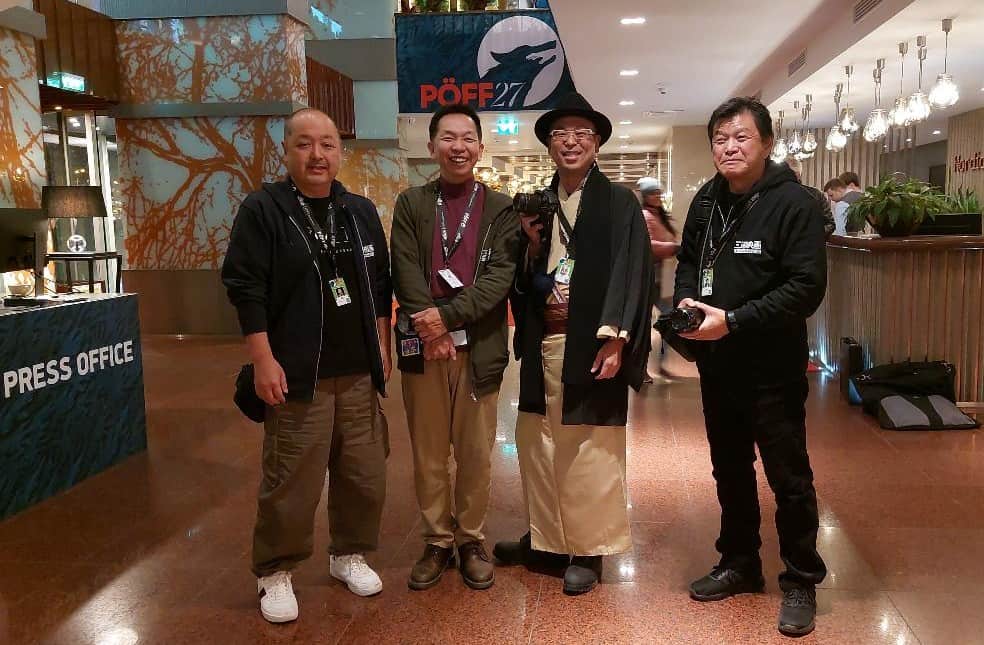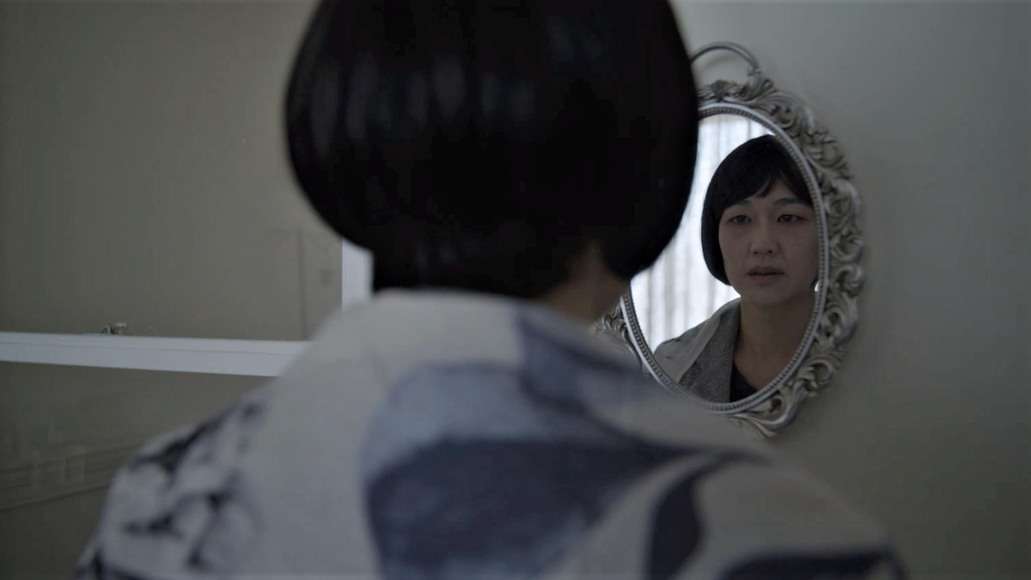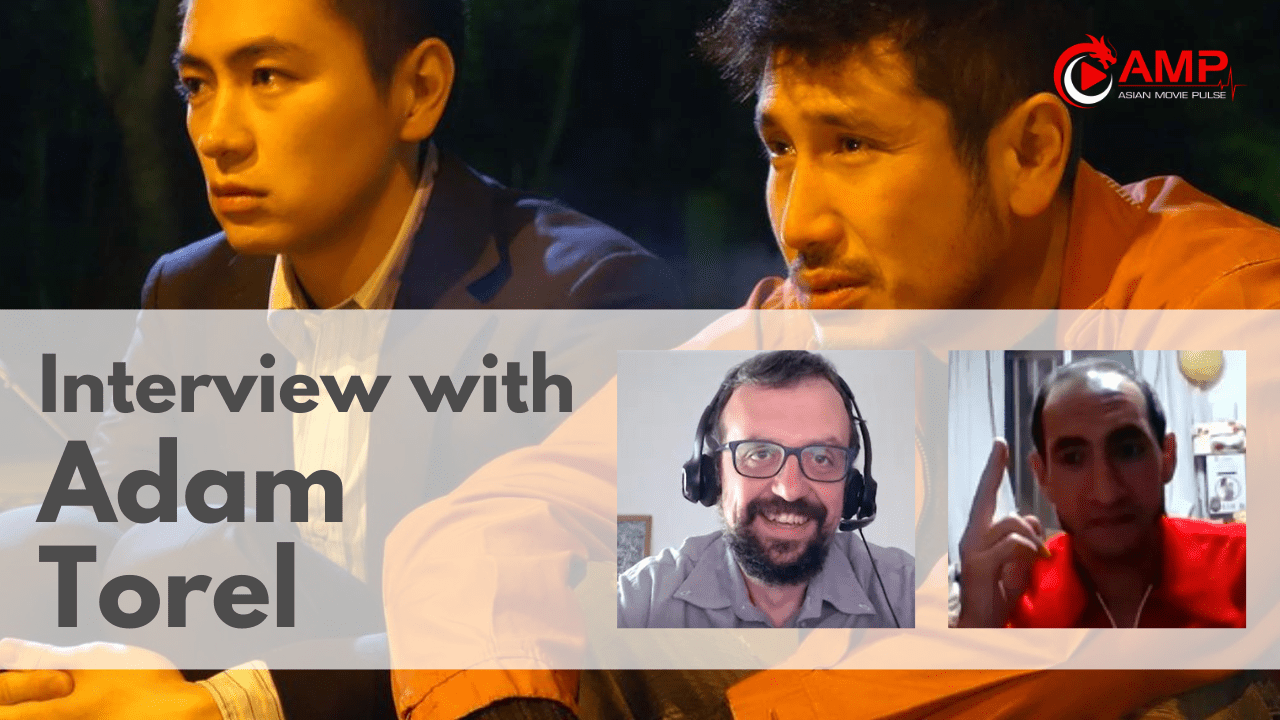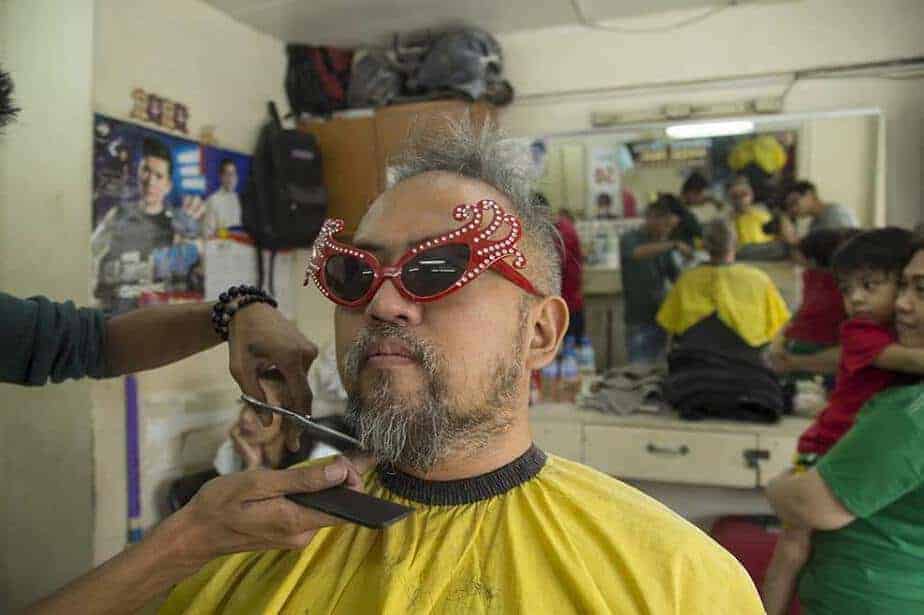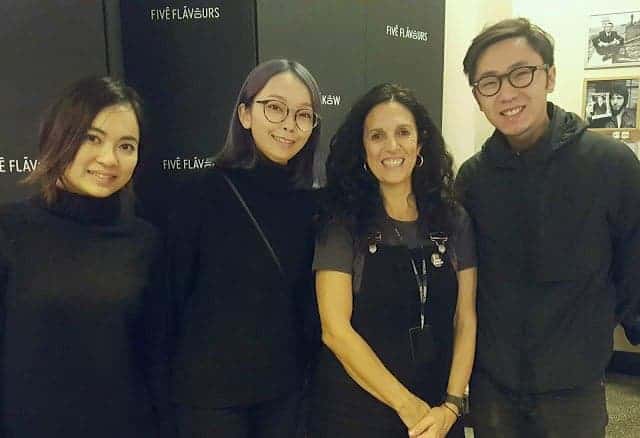There were in total three films from East Asia competing in the Official Selection of Tallinn Black Nights Film Festival this year, and although none of them won an award, they left a deep impression on the festival audiences. Akira Iwamatsu's debut feature “Ben-Joe” stood out for a couple of reasons. Not only that the film was made on a shoestring budget (actually without any budget at all), and by the force of filmmaker's love for the cinema, his dedication to the project and lots of volunteering and helping hands, it is also based on a shocking true story about heavy abuse of a group of eating disorder patients in a clinic held by a sadistic cult somewhere at the beginning of the 21s century. Based on the memories of a woman who endured it all, the film was realized in close cooperation with her. The film's title “Ben-Joe” means “Lavatory” in Japanese, which usually is the place where people with eating disorders spend their time.
Asian Movie Pulse met with the “Ben-Joe” director Akira Iwamatsu and his close collaborator and scriptwriter Masato Shimizu after the film's world premiere in Tallinn to indulge in a conversation about dysfunctional families, traumas and the challenges of making a film without financing.
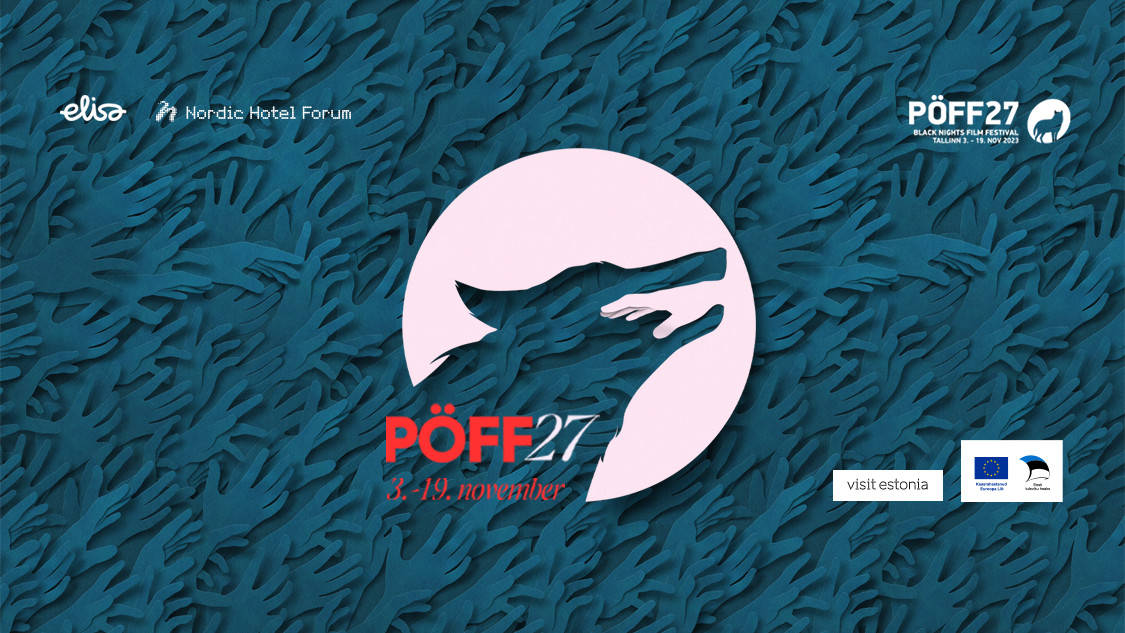
Before we start talking about your motives and inspirations to make this film, can you tell us how this project came to life, knowing that you did not get any financional support to realize it?
What I would like to put forward is that the film was made because everything was done by volunteers. It is also a completely independent movie, made by people who really wanted to have their hands in this. I wouldn't like to focus only on the film's śtory in this conversation, but also to say something about its genesis.
“Ben-Joe” is based on a true story which came to you on its own so to say. Can you tell our readers how exactly this happened?
It came from one of my former students because I am also an elementary school teacher. That girl helped me with my first movie, and later on, around the time when she was about to begin with her studies, she just disappeared for 2-3 years. When she was finally back, she contacted me and this is how I found out what happened to her. This is where the idea came from, or so to say – almost all of the content, because the story is not only her account of her eating disorder, it is also about the family relations and the horrors she went though. I could totally empathize with her and her feelings towards her father, because my experiences are quite similar. I felt that I had a good excuse to build in a part of myself in the movie as well.
Although inspired by your former student's life, I guess that you took the liberty of altering bits and pieces in the script for the purpose of storytelling.
Generally it's all true, but because it is a movie and not a documentary, and because we wanted to express the feelings and address certain topics, my scriptwriter Masako Shimizu and I beefed up the emotional and the visual part a bit. The story itself is real.
Including the crazy cult behind the rehab for women with eating disorders?
Other than the actual diaries and documents provided by the girl whose story the film is based on, we didn't get a chance to interview or even meet the people from that facility. We based the film on Saki's account only. So, you could say that some fiction was involved. On the other hand, everything surrounding the family dynamics, even the part about Saki's twin sister is true, and generally the inter-personal relationships. In other non-family related parts of the movie things are more exaggerated.
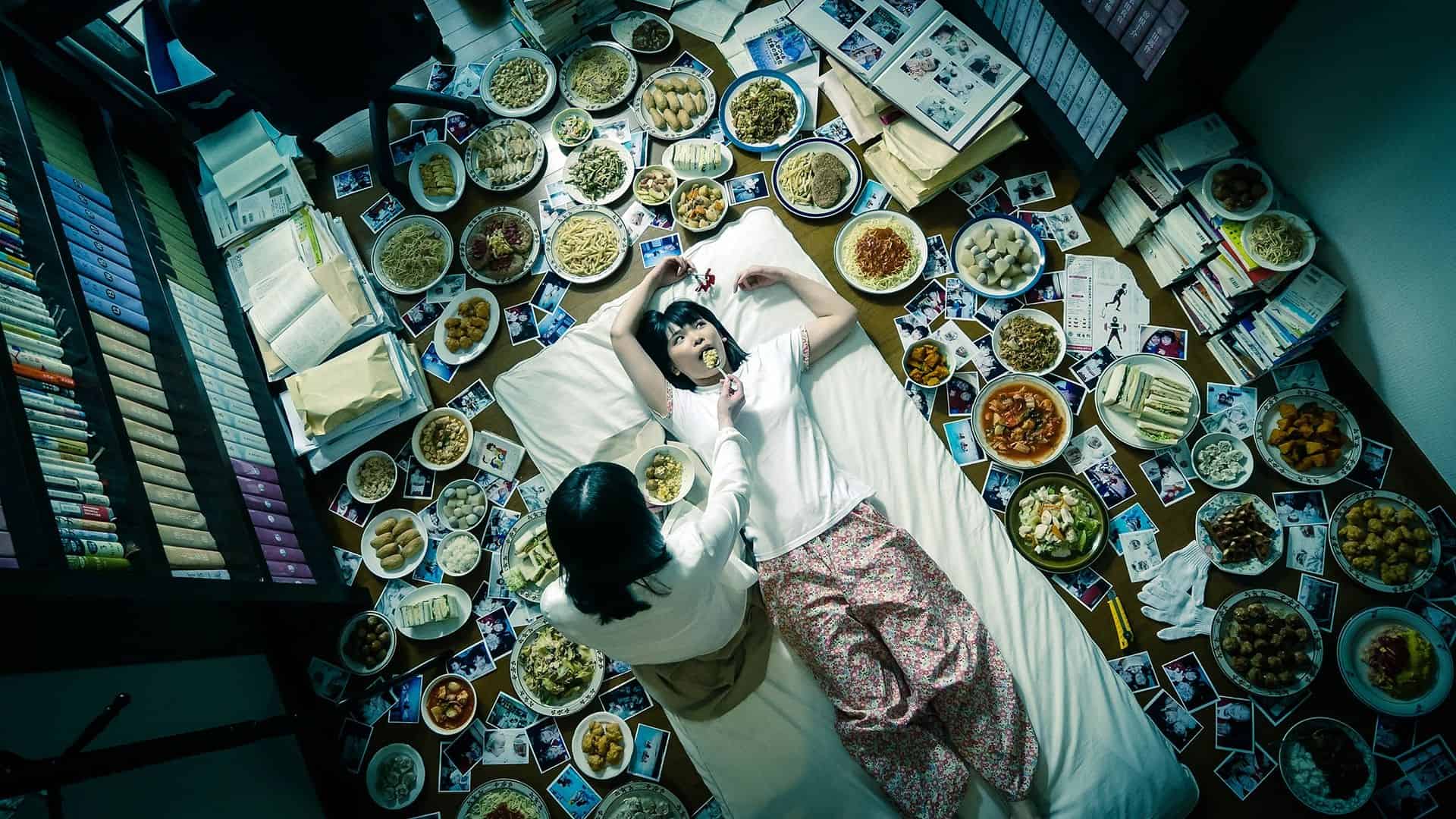
But I guess that the real-life Suki didn't stab a family member, right?
That's pure fiction (he laughs).
The building you used as the facility for people with eating disorders is quite unique, and also very eerie. How did you find it?
It is actually an abandoned elementary school building, and it was scheduled to be demolished a year after we shot our film in it. The reason why we could use it entirely for free was that it was in such a state of disrepair. Because we had zero budget and our complete project was dependent on volunteers, we were going from shop to shop, asking for the left-over materials to build the walls, fix the roof which was leaking, and we did a lot of carpentry as well. It took us about half a year to make that school ready to use it as the set.
When you say zero budget, does that mean that you also improvised with the special effects?
Yes. The blood scenes or the hanging was done by the people who wanted to be part of the movie, and who saw their chance to shine. With blood, for instance, we used some leftover wine that we drank on the set. We completely relied on great people to make everything happen and get the job done. It's not money but time that we invested in the movie.
When did you film “Ben-Joe”?
The shooting started in 2016, and took about a year.
I have a question for the screenwriter. Mr. Shimizu, when you heard about this difficult story that you were asked to turn into a script, did you feel it essential to embrace genre elements to make it work?
I did it in close collaboration with the director and the actual girl. We were constantly discussing how to proceed, change, and re-write the story and in the process we realized that – because there were so many grotesque aspects in it – the ship would sink if we left it that way. And since the whole story was horrific, we couldn't avoid the horror touch which emerged gradually.
There is also a story of sexual abuse which couldn't have been easy to develop in the script. Mr. Shimizu, how did you achieve to depict it in such a way that it doesn't sexualize the lead actress Nonoka Ishikawa, but that it still shows the full scale of a terrible crime over a patient?
First of all, we asked for the permission from the real Saki to show that part of the story as well. We needed to make sure that she was ok with it. She gave us her permission, but we never discussed what had happened in detail. We were unsure what to do concerning the scarce information we were given, but cutting that particular part about the sexual abuse wouldn't have served the story. So, we knew we had to keep it, although we had to be very careful about how to do it. The most important question was how to pull it off and tie it to the rest of the narrative and show how she fell into the pit and got brainwashed like the rest of the patients before her. It was integral, and the most difficult part of the movie. We solved the problem among ourselves.
How did you work with your actors and how was the casting process?
There were many steps to get them, and I am not talking only about finding the right actress for the role of Saki. Usually, when you do a casting in Japan, it's done in Tokyo because there are so many actors there ready to grab an opportunity to work. But actually, one part of our auditioning process – because we really wanted to shoot locally, some 300km away from Tokyo – was to filter out the people who were not ready to come to another part of the country and apply for the role. Of course, there were still many who came all the way from Tokyo to audition. The second part was to “shop locally” in the Nagoya prefecture, but also in the surrounding areas. We were looking into the amateur acting groups and students at many places, to keep it local and out of Tokyo. But, despite of a very intense search for Saki in the countryside we couldn't find her, so we ended up asking acquaintances, relatives and friends and finally, after a very long time, someone introduced us to Ishikawa. One part of the complications was related to very important details – not only the actress portraying Saki, but those who would play other patients in the clinic had to shave their hair, and act in scenes with lots of violence involved. All the trigger warnings were there, and of course, even initially when the people accepted, the more they got into the process, the scarier it got for them. So, some people were abandoning the project.
What was that ‘je ne sais quoi' you were looking for in candidates to find your Saki?
After finding Nonoka Ishikawa, I took two days and nights off to go over the initial script with her, and rehearse, rehearse, rehearse to see if she has the qualities that I was looking for. Initially, I couldn't see them, but after those very intense two days, it finally happened. Something resonated with me, and I knew that she was going to be my Saki. We rehearsed three additional months, so it was a very long preparation period.
I have to return to the question of money yet again, because post-production is never zero budget. Is that a reason why it took you such a long time to finalize the movie?
The main thing was – and I'd like to call it professionalism – that when we were preparing and later on shooting the movie, the cast and the crew were on the same page regarding precision. If anyone felt that there was something one could have done better, or that it had to be re-done, we did it immediately. Everything was done right on the spot without delays. If we saw something that had to be improved or done in a completely different manner, we would do it right away. That was the basis for making the post-production easier. There was just one unfortunate incident. A year after the completion of shooting, we had to re-take a scene in which all patients were bald. So all those women who finally grew their hair back had to return and shave their scalps again. That was a bit of a tragedy. Otherwise, we had the same understanding of priorities.
The lead actress is actually called “Idol” in Japan which is basically a young singing and acting talent. They kind of all have this specific look to them they have to keep: maidenly, girly, long hair, sweet, with soft voices. For such girls who appear on TV and social media is very risky to change their looks, and god forbid shave their hair. Ishikawa showed her dedication to the cause and she was ok even with the second round of shaving her hair. She did everything for the role.
“Ben-Joe” ended up in the Official Selection of the Tallinn Black Nights Film Festival. Did this come as a surprise to you concerning that you made this movie without any budget and real promotion?
This is exactly what I wanted to do with this movie – get out of Tokyo and show a movie that was done as an amateur project but which has enough appeal for foreign audiences coming to this kind of movie festivals. It was a dream come true, and definetely my goal. I will never forget how I was trying to motivate everybody by promising them to buy them beers and sake once we finish the shooting and start premiering the movie abroad. Of course, I was half-joking at the time, but now it's real.


